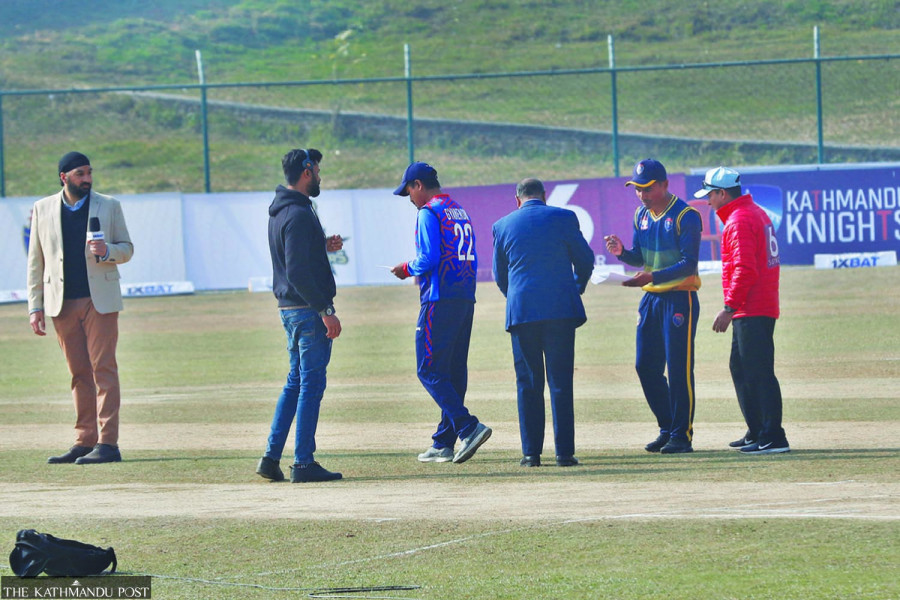Editorial
Fixing cricket
Rejecting allegations of match-fixing out of hand will further discredit the Cricket Association of Nepal.
The last thing the Nepal T20 League, the inaugural official franchise tournament of the Cricket Association of Nepal (CAN), the country’s cricket governing body, needed was a match-fixing scandal. It came on Tuesday, 10 days into the tournament, threatening to jeopardise the league. It all began with Sachin Timalsena, an official commentator, announcing his dissociation with the league after he suspected suspicious activities in some matches. Among his doubts were a series of ‘no balls’ by experienced players and suspiciously poor performance of international players. Soon after, Gyanendra Malla, former captain of the men’s Nepali national cricket team, who is now the captain of the Kathmandu Knights, one of the six franchise teams in the league, claimed a teammate of his had been offered a match-fixing proposal.
What is even more shocking is the CAN press statement released on Wednesday refuting the allegations. Rather than committing to investigate the matter impartially, the game’s governing body rubbished the allegations, saying they were being given air in order to bring disrepute to Nepali cricket and Nepal. It also asked those with information on the allegations to lodge a formal complaint, along with evidence, at the International Cricket Council’s (ICC’s) Anti-corruption Unit. It signed off by reiterating its request not to disseminate disinformation about the association or the country.
Clearly, the association did not take the allegations seriously, nor did it consider it necessary to address the concerns raised by stakeholders and cricket fans alike. Rather, it questioned the intent of those raising the red flag. In refuting the claims and refusing to begin investigations immediately, the CAN limited itself to the role of the organiser of the controversial league rather than a responsible institution with full membership of the Asian Cricket Council (ACC) and associate membership of the ICC. In fact, the callous response of CAN officials has dented the image of the association as an impartial cricket-governing body.
Thankfully, Deputy Prime Minister and Home Minister Rabi Lamichhane was quick to request the Nepal Police to investigate the matter; and its Central Investigation Bureau is now on the case. As the issue has gone into the hands of investigating authorities, the CAN now has no option but to fully help the investigators. If not, its own role in the match fixing scandal might come into question. Apart from the fixing scandal, there have been allegations of lack of pay to the players even after 60 percent of the league games were already played. Following yet another controversy on Tuesday, the CAN is reported to have vowed to clear the players’ dues at the earliest.
The irresponsibility with which the CAN has conducted itself on such a serious issue is unacceptable. Notably, it had earlier agreed to lease out the annual event for eight years to a little known Indian sports management company, Seven3Sports, as ‘commercial and strategic partner’, without an open bidding. The irresponsibility of a few individuals risks irrevocably damaging the image of the game of cricket in Nepal. To avert such a situation, CAN officials and investigating authorities should work closely, while keeping the ICC and the ACC in the loop, to ensure that there are no lapses in the probe. While it is the responsibility of the authorities to look for evidence of wrongdoing, those in the know, including the players, have the moral responsibility to fully cooperate in the investigations so that the culprits are brought to book and the suspicion over the game they all so love is cleared.




 9.41°C Kathmandu
9.41°C Kathmandu














